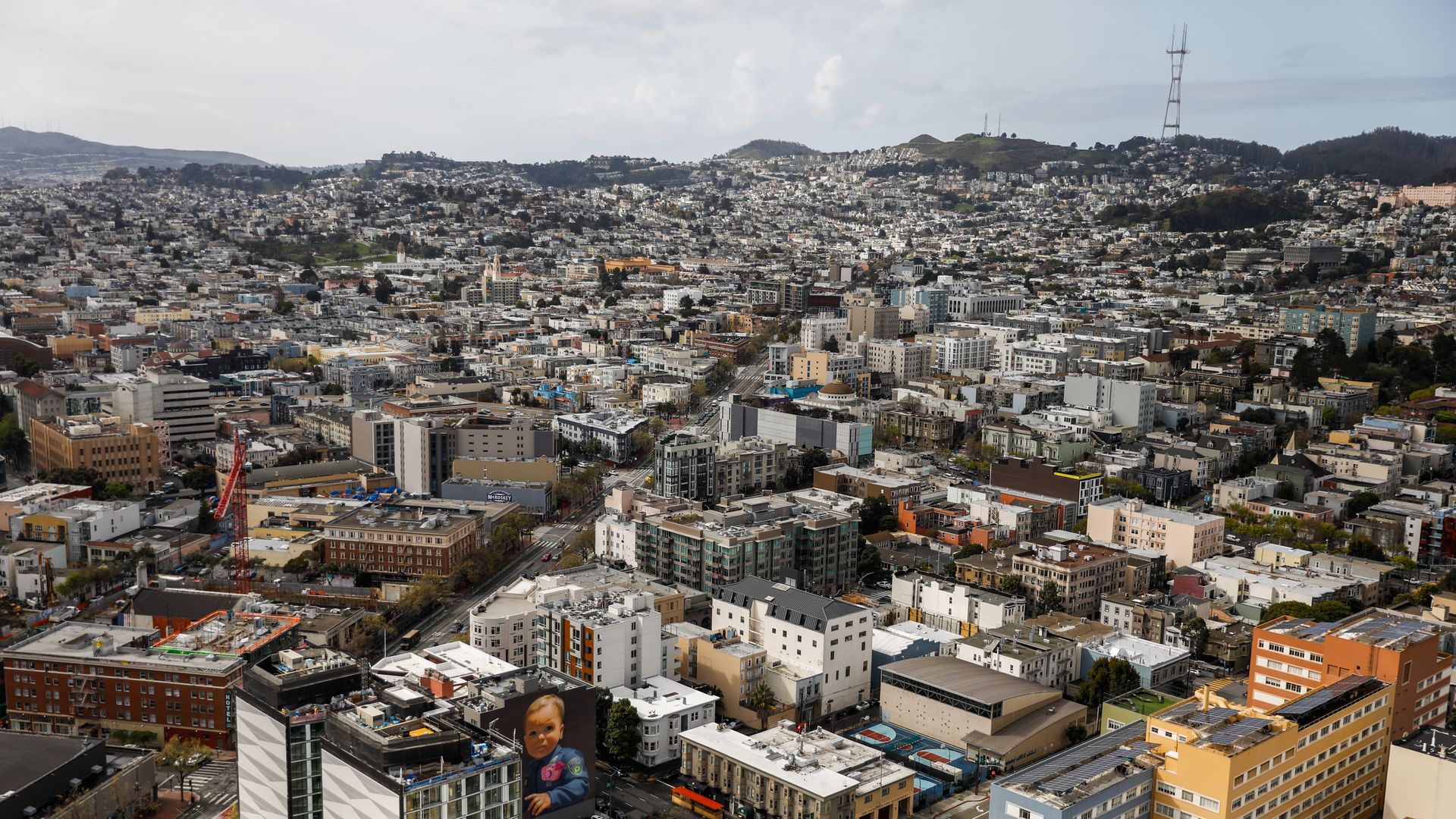SF supervisors question California's housing mandate
Add Axios as your preferred source to
see more of our stories on Google.

The city. Photo: Gabrielle Lurie/The San Francisco Chronicle via Getty Images
The deadline for San Francisco to finalize its plan to increase housing over the next eight years is approaching, but already local politicians are questioning whether the state-mandated goals are realistic.
Driving the news: Last week, the Board of Supervisors met to discuss the city's housing element, which must show California regulators how San Francisco intends to build 82,000 housing units — 46,000 of which need to be affordable.
Why it matters: Without a plan approved by Jan. 31, 2023, San Francisco risks losing state funding grants for affordable housing and more, as well as forfeiting local control over zoning laws. That means, in theory, developers would be able to build whatever type of residential buildings they pleased, so long as it conformed to safety, environmental and affordability standards.
- Adherence to the plan, however, could massively crank up the city's housing production given that it averaged 3,500 new units per year between 2010 and 2020.
- Pro-growth camps say that more inventory will bring relief to home buyers and renters in what's become one of the most expensive markets in the country.
Yes, but: How will the city come up with the money to meet the state's affordable housing target, supervisors questioned during last week's hearing.
What they're saying: "What you have here is a state government that's … not putting their money where their mouth is," Supervisor Aaron Peskin told Axios. "If you're gonna tell us what to do, then send us a check to help us do it."
By the numbers: Today, the city funds roughly 40% of the costs to build new affordable housing, with 60% coming from other sources, including state grants, Anne Stanley, a spokesperson for the mayor's office of housing and community development, told Axios.
- As Stanley put it: "Production of new affordable housing is contingent on State funding; San Francisco cannot produce the required amount of housing without significant State investment."
Reality check: For the upcoming 2023-24 fiscal year, Stanley said her department (the city's main source for financing 100% affordable housing projects) budgeted $649 million for affordable housing and development. It would need an estimated $1.3 billion in addition to meet the state's target for the year.
The other side: Lawmakers in Sacramento, including Sen. Scott Wiener, criticized the supervisors' response.
- "Would I like to see the state put more money into affordable housing? Of course," Wiener told Axios. "But the idea that the state is to blame for all of San Francisco's housing problems is just ridiculous."
- Wiener said the Board should uphold zoning changes spelled out in the housing element, which would bring more density to the west side of the city, in particular. He also stressed the need to streamline permitting processes, which he says are "the worst in the state … in terms of time, complexity and political interference."
On his end, Wiener says he's working on a few bills over the next year that he hopes will help, including one measure that would allow religious institutions to build 100% affordable housing on their land.
What's next: The Planning Commission will work to obtain state approval on the housing element in December before it heads to the Board of Supervisors to be formally adopted by the end of January.
- And then, as Wiener said: "You do the best you can to build as much as you can."
